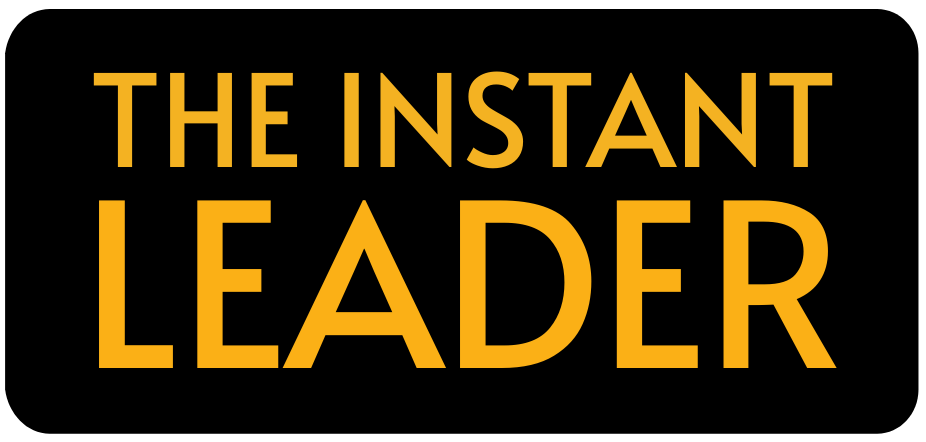Emotional intelligence (EI) is more than just a trending term—it's the keystone of effective leadership that can transform your ability to connect, inspire, and guide those around you.
While you might have heard of EI, you may not have considered the significant impact it can have on your instant leadership.
Think of EI as the finely-tuned engine behind a smooth-running vehicle; without it, your leadership might sputter and stall. But with it, you can navigate the complexities of human interactions smoothly, turning potential conflicts into stronger relationships with those you work with.
Without EI, you risk misunderstanding, miscommunication, and missed opportunities. With it, you become an instant leader who gains more trust with every conversation.
Ready to elevate your influence and impact? Let’s dive into how you can quickly develop this essential trait.
What is Emotional Intelligence?
Emotional intelligence, a term popularised by psychologist Daniel Goleman in his groundbreaking book "Emotional Intelligence: Why It Can Matter More Than IQ," refers to the ability to recognise, understand, manage, and reason with emotions. Goleman identifies five key components of EI: self-awareness, self-regulation, motivation, empathy, and social skills.
Daniel Goleman stated:
What really matters for success, character, happiness and lifelong achievements is a definite set of emotional skills – your EQ — not just purely cognitive abilities that are measured by conventional IQ tests.
Being an effective leader requires you to work on your ability to think as well as your ability to handle emotions.
Out-of-control emotions can make smart people stupid.
The Importance of Emotional Intelligence in Leadership
Enhancing your emotional intelligence will significantly improve your leadership abilities. Here’s why:
Improved Communication - When you understand and manage your emotions, you end up communicating more effectively. Instead of reacting from your emotionally triggered state, you're responding intentionally.
Enhanced Conflict Resolution - With high EI, you're better at handling conflicts. You address issues calmly and considerately. People trust you more because you come across as more level-headed rather than flappy (not a technical term).
Increased Empathy - Empathy means understanding the other person's feelings and perspectives.
This is not the same as agreeing with them, a common wrong assumption that gets us into unnecessary pickles. We think if we say "I understand you're frustrated", we're also saying "I agree". No - they do not go together.
You can say "I understand you're frustrated" followed by "How can I support you?" and stand firm in the decision you've made.
Better Decision-Making - Emotional intelligence helps you manage your emotions and reduces impulsive decisions. How often have you said or done something in the heat of the moment, only to regret your behaviour later?
Stronger Relationships - High EI helps you build and maintain strong relationships. This is due to an increased understanding of yourself and others from an emotional perspective. Self-awareness and other-awareness.
Building Emotional Intelligence in Three Simple Steps
Here are some practical steps you can take today to grow your EI on the job.
1. Self-Awareness: The Mirror Technique
Self-awareness involves recognising your emotions and how they affect your thoughts and behaviour. It’s the foundation upon which EI is built.
- Daily Reflection: Spend 10 minutes each day reflecting on your emotional reactions. Write them down in a journal.
The key question to ask is "What triggered me today?". Then ask the follow-up question "Why did this trigger me?". Keep asking this question until the answer reveals something about you and the other person or other external circumstances.
For example, if your answer is "Because she was late", or "They interrupted me", then you're blaming others for your emotional response. This is no good.
If your answer is something like "I felt I was being disrespected by their lateness, that they didn't value my time and therefore value me. This was an assumption I made about the person's intentions, which may not be accurate", then you're getting somewhere!
- Seek Feedback: Ask colleagues and friends for honest feedback about your emotional responses in different situations. Example questions are "Do I appear self-aware of my emotional state in various situations", "Have you noticed any patterns in the way I express frustration or anger?", "How do I typically respond when I'm stressed or under pressure?"
Unless you're used to inviting feedback, this won't be easy to start with. However, the benefit of asking for the opinions of those close to you is the accelerated development of your EI, which we've already established has huge benefits on your instant leadership.
"Knowing yourself is the beginning of all wisdom." - Aristotle
2. Self-Management: The Pause Button
Self-management means handling your emotions in healthy ways. It includes staying in control and adapting to changing circumstances.
The Pause Technique: When you feel an emotional reaction, get curious.
This is an extremely powerful technique to help slow down your impulses and separate your emotions from your behaviour.
When you experience a negative emotion, pause just long enough to be curious about the emotion that just surfaced. Imagine you bottled up the emotion, put it on the table in front of you, and then ask "Hmm... what I am noticing about this?"
This does two things:
- Validates your emotions. No emotion is wrong, just often unhelpful.
- Gets you into the habit of disconnecting your feelings from your actions.
3. Empathy: The 'Walk in Their Shoes' Approach
Empathy is the ability to understand and share the feelings of another. It’s essential for building strong relationships.
Here's an extremely effective question to help you view the world through someone else's lens:
"What do I have to believe about myself, others, and the world for me to behave in exactly the same way?"
If you don't get someone else's behaviour, if it confuses you, or if you think it's weird, try asking the above.
"Empathy fuels connection; sympathy drives disconnection." - Brené Brown
Do I Really Need Emotional Intelligence?
You might find yourself questioning the importance of emotional intelligence, or perhaps you’re uncertain about your ability to develop it. These are common doubts, and it's perfectly fine to have them.
However, it's crucial to understand that developing your emotional intelligence is one of the best investments you'll make into your overall leadership ability.
Just remember it'll take time. Developing EI is akin to embarking on a journey rather than a sprint. Imagine it as nurturing a garden. You won’t see the blossoms overnight, but with consistent care, the rewards will be bountiful. Commitment and regular practice are your best allies in this endeavour.
Incorporate these steps into your daily routine, and over time, you'll witness significant improvements. You'll start to notice a shift in how you manage your emotions and how effectively you relate to those around you.
This evolution won’t just enhance your leadership capabilities but will also enrich your personal relationships and overall well-being.
Emotional intelligence is key to being both a great leader and a great human being







